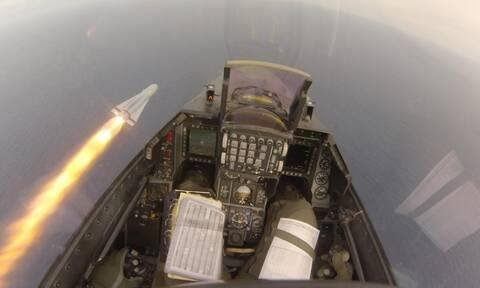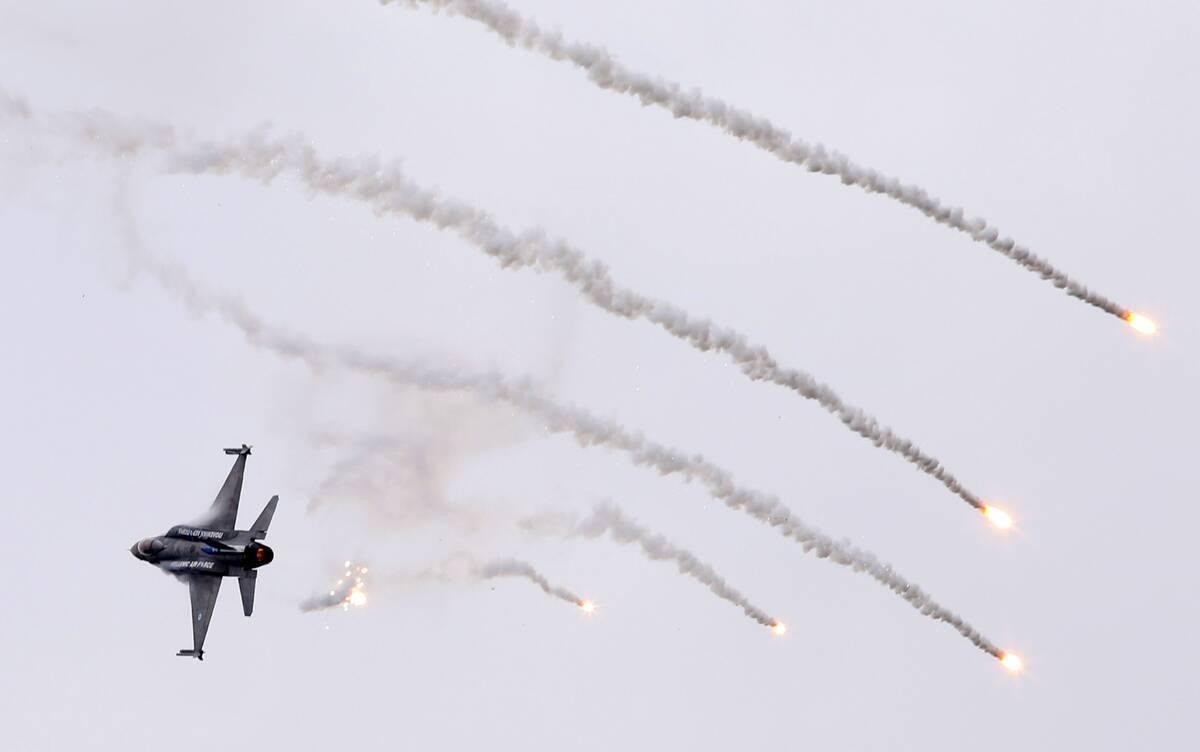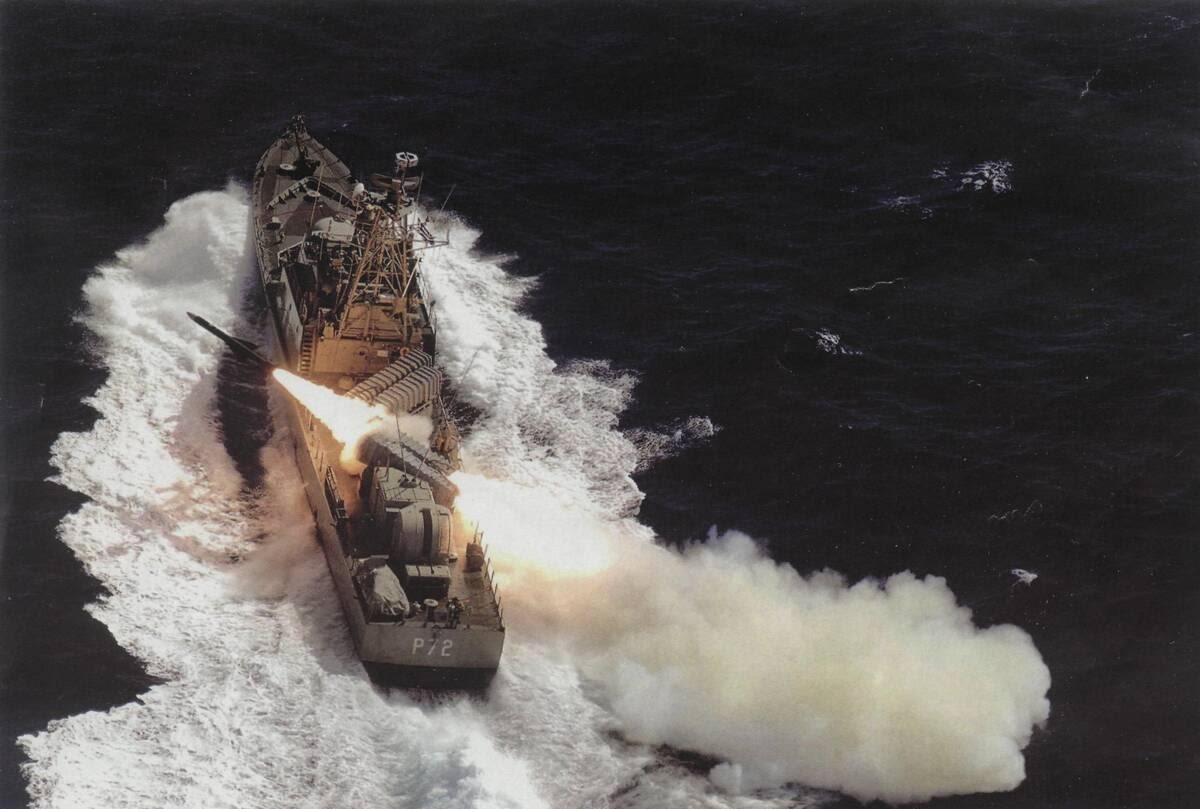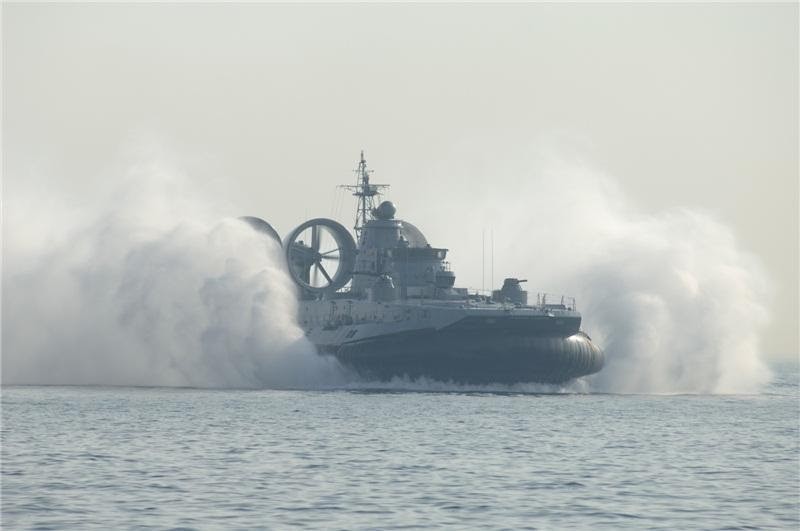Greek-Turkish War: What it would look like? – A supposed scenario – By Konstantinos Mavraganis – 29.06.2021
Greek-Turkish War: What it would look like? – A supposed scenario
 By Konstantinos Mavraganis
By Konstantinos Mavraganis

Taking into consideration the fact that the Greek-Turkish affairs are being topical, almost on a daily basis lately, the Turkish provocative movements have reached a totally different level, and the various transformations in Greece’s wider geographical region and the whole planet as well, the possibility of a military conflict between Greece and Turkey does not seem so highly unlikely anymore, as it used to couple of years ago.
Critical incidents in the region of Evros and the Aegean Sea during 2020 brought the Greek society and public opinion in front of a hybrid/asymmetric (for the very moment), yet totally real conflict. Despite the fact that, in any case, Greece has proved to be vigilant, capable, and willing to sufficiently cope with any Middle Eastern threat by the same means, while setting the issue on the European table as well and forming alliances, a lot of people claim that the so-called cold war or the no-war between Turkey and Greece could sometime reach high temperatures, leading to a general high-tension conflict between the two countries.
Given that the discussions about the Turkish President Erdogan’s and his government’s (and of the whole Turkish political status quo, in general) repeated provocative statements and actions and the talks on arms expenditure (e.g. new frigates, combat Rafale aircrafts, F-35, etc…) are constantly on the table, the game of information and proper realization of the issue is becoming very significant, especially in our era when information warfare and Internet propaganda are even more actively involved than they were in the past.
In this framework, and bearing in mind that the average citizen nowadays is being bombarded with data, statements, analyses, etc. sometimes containing bizarre terminology and technical terms, newsbomb.gr attempts to provide a certain, clear, and precise (to the extent that is possible, of course) picture of a Greek-Turkish military conflict, with the assistance of Ioannis Baltzois, President of HEL.I.S.S. (Hellenic Institute of Strategic Studies), Lieutenant General (ret), and holder of M.Sc. in Geopolitics and Periklis Zorzovilis, President of the Hellenic Institute of Safety & Defense Analysis.
We would like to state that this article aims neither to list raw figures and data out of a wider frame whose real value to the average reader is questionable, nor to simply create a variety of scenarios. On the contrary, the article aims to form a wider and realistic picture on the nature of a possible conflict, and the parameters affecting it.
Power balance, hierarchy and other factors: Pros and cons
The fact that Turkey outnumbers Greece in many sectors is well known – as are the numbers considering the armed forces of each country and the types of their weapon systems, thanks to many open sources.
That being so, the context that these numbers concern is vitally important. To analyze those numbers, various factors come to play a vital role: how modern and effective the armed forces’ media are, how is hierarchy operating, the education level, and the general situation, etc.
In this frame, Mr. Baltzois underlines the significance of the radical changes in the Turkish army since the unsuccessful coup d’ etat of 2016, stressing the fact that the clearance made by the Turkish President had rather a negative impact on the Turkish ‘chain of command’.
‘Greece has a solid, high-esteemed army force, which lacks confrontations and there is no suppression or fear of imprisonment. So, there is a so-called “esprit de corps”. This is not the case in Turkey, especially after the 2016 coup d’ etat. Erdogan opted for a clearance, depriving the army of decision – making powers. Greece has a smooth administration flow, whereas Turkey does not: The withdrawal of at least 400 Turkish army high commanders results in a terrific absence of power. “Chain of command” has been corrupted, and there is no proper decision – making. This is to be observed in various military operations – we are seeing plenty of mistakes’, says the HELISS President.
Moreover, Mr. Baltzois emphasizes the state of the Turkish Air Force where massive commander withdrawals have led to the pilot/aircraft proportion drastically dropping (it is normally 1/3, but it is estimated to be around 1/1.3 currently in Turkey), and reminds that the presence of Pakistani pilots in the Turkish Air Force (ΤΗΚ) has been repeatedly reported, from time to time.

In addition, we should not be blind to see what will happen in the future: Turkish balancing tricks made by S-400led to the country being knocked out of the F-35 programme, although Turkey had invented in it for the sake of its Air Force Future. Furthermore, Turkey has been facing difficulties regarding the Turkish F-16 fleet support lately, as part of its fragile relations to the U.S.A.
On the contrary, Greece has been modernizing its own F-16 fleet to the extremely advanced version of F-16V, while obtaining modern combat Rafale aircrafts (which, in addition with the extremely large –scale air to air Meteor missile are considered to be a game changer in the air battles), and will normally also obtain F-35, most likely sometime in the future. The former are happening at a moment when the future of THK is both literally and metaphorically in the air (e.g. it is supposedly backed by the local TF-X, and they are periodically planning to supply the Air Force with Russian combat aircrafts, yet all these plans are still theoretical). However, Turkish supremacyin unmanned aircrafts cannot be denied (we will further refer to that below). As for the navy, it is true that Turkey has systematically pursued to boost its navy with a great number of modern units that, taking into consideration the figures in favor, is leading to an unquestionable supremacy, in comparison to an admittedly ageing Greek Navy, which is currently quick to modernize itself.
On the other side, though, the Greek side has demonstrated quality, experience and the seamanship of the Greek Navy’s human capital, which is still maintaining its supremacy over the Turkish Navy. This conclusion came naturally and in deed after the latest summer crisis in the Aegean, when Turkey sought a surprise effect, but ended up being the surprised one, by the quick reaction of the Greek Navy, Mr. Baltzois highlights.
‘It is only now that the Turks are trying to form their Navy. It is not only the weapon systems. Greece outshines Turkey in human capital and seamanship, while having significant weapon systems such as Type 214 submarines which, in cooperation with heavy duty torpedoes we are obtaining, offer great potential. Additionally, gunboats firing missiles in the Aegean islands are able to cause huge plights in the Turkish operations’, adds Mr. Baltzois.
With regard to the ground forces, the HEL.I.S.S. President confirms that the Greek Army is properly equipped with a powerful arms potential, with Greek Leopard 2A6 to be used in Evros operations in the very centre. When it comes to the Greek islands, old yet sufficient for the island operation fields M48A5 MOLF are there for use. ‘There is no need for a lot of arms in the islands’, he says.
Nevertheless, the President stresses that low manning of the battle units is a significant downside for Greece since it is not on the requested level. At this very point, the issue of military service in Greece arises. “Increasing the time of military service is no solution to the problem, it has to last for one year and a half, and to be mandatory at 18 years of age, like it is in Israel. If this comes into practice, manning will increase up to 50%. Manning is our drawback compared to Turkey. The current situation of the Greek armed forces creates troubles in reserves, too”, he states.
“Opening up” and duration: First moves, objectives of a conflict and its timing

A general principle of the modern war (and not only) is that the side attacking first is the most favored one – that is always relevant to its objectives, though.
In this respect, the possibility of opening up a Greek-Turkish conflict is worth examining: As Mr. Zorzovilis believes, the Aegean is a de facto easier goal for the attacking party, mainly due to the geographic formation and the proximity of the islands to the Middle East coast.
“The battle front is interrupted, the opponent is most likely hoping to manage to isolate the field of interest (those are scenarios of military exercises, too), using naval and air forces, so that the aid flow is restricted or totally cut, creating favorable conditions”, he says.
So, does that mean that landings on big islands aiming to their full occupation is the objective? Such a scenario is far away from being realized, although it is realistic. “Politically speaking, I do not consider a Turkish landing on Rhodes or Crete, for example, on any big islands any likely. There should be some kind of basis for a venture like this to be justified. That being said, we are moving on to the Turkish list on disputable islands and barren islets, as well as to various scenarios, e.g. mobile base station installation on some Greek island without us realizing on time (so that Turkey shows that this is supposed to be their land), or even a surprise attack to some small troops. In a Greek – Turkish confrontation, unfortunately or not, the initiative is a Turkish business”, highlights Mr. Zorzovilis.
Mr. Baltzois’ interpretation is on a similar level: “Turks would struggle to pursue the occupation of some big island. They would rather opt for smaller islands or barren islets. If the latter are not inhabited, the Greek reaction should be no other than their levelling. In case that the islands are inhabited, they should not be any big, and there will most likely be a confrontation, that is bombardments during the landings etc. In this very case, the reaction of the Greeks will certainly an attack in Evros… we, Greeks are able to attack in Evros and…take Turkish islands. The doctrine at this moment is that we should make use of all our media, aiming to claim something Turkish, as a negotiation weapon”.
With regard to the duration of a possible battle, both Mr. Batzois and Mr. Zorzovilis believe in a short, highly violent confrontation which would probably stop due to the intervention of third parties such as the USA and the E.U, so that the collapse of NATO’s southeastern alliance is deterred.
As a result, the Turkish ambition seems to be more of a ‘point’ collision. Mr. Baltzois points out that the Greek leadership has made commitments that such a thing is not going to happen: “There is no point crisis: Forget about a crisis that will still be raging in Kastellorizo. There will be general battles everywhere… I estimate that a NATO crisis would not last that long, maybe some days or a week. It won’t be a point battle, a total one. We will experience bombardments from both sides, or even in the background of the operation, e.g. in infrastructure, and in various works of military and overall significance (harbors, bridges…etc.)”.
Moreover, the possibility of an accidental or coincidental flash-point is always there. As Mr. Zorzovilis states, in the case that Turkey acts hopelessly and opts for an overall conflict from the very start, “it is highly likely that the sooner possible a great number of Greek forces in points of interest gets attacked, so that the ability of the country to counteract is undermined, alongside with the political willingness for an answer and the Greek nation’s morale. To illustrate this situation, one can see what happens when various region suffer from a plight simultaneously, what that means for the local people and for us in Athens, too. We will immediately start activating our reflexes”.
However, there would be a need for preparation for the Turkish side that is troop movements, etc. which would be easy for Greeks to detect, especially in the case that Turkey goes for a preventive plight of massive attacks. In this framework, the Greek reactions over the recent crisis situations justify an ounce of optimism, as the Greek forces have been activated in a very short period of time, largely dispensed and highly alerted, despite the conditions created after a decade of memoranda.
When it comes to Cyprus, Mr. Baltzois estimates that most likely there were operations in there, too (unless Turkey has to be in other fronts, at the same time, as well, resulting in its forces being dispensed), taking into consideration the fact that Turkey maintains troops in Cyprus. In this case, the Turkish objective is the creation of enclaves to be occupied on a local level, overall forming a favorable situation, not a massive attack aiming at the occupation of the entire island.
The form of the conflict

Getting to the point, which is the form that a Greek-Turkish conflict would take during the third decade of the 21st century, a conflict of “near-peer competitors” i.e. regular forces of corresponding capabilities, the first thing to understand is that things are very different in relation to the image of 1940 or to the Persian Gulf War or even to the daily “dogfights” (virtual aerial combats) perceived by a large portion of the public. Given the long-range and advanced systems, there will be no “Naval Battle of Elli and Lemnos” like in the Balkan Wars or anything similar – however, conflicts will develop uniformly across the entire operational fronts.
“We will be talking about a battle across the Aegean, able to extend to the eastern Mediterranean, the south and east of Crete … and it will not be a “closed “war, but a war of air and naval forces that will only be seen on radars. Only the land army will fight “at close range”. In the event of a collision with a strike from Turkey, it is estimated that the perception of the Greek Armed Forces will initially be defensive absorption and an aggressive counter-attack – with offensive operations probably situated in Evros, where our motorized and armored units are very well trained, with excellent leadership. “Turkish forces there would probably focus on the Karaağaç bridgehead, but there would also be offensive actions from the Greek side,” highlighted Mr. Baltzois – emphasizing that, based on the new war theories, the forces must operate in conjunction with the area in which they operate.
“There must be a combination of the weapons’ systems with the designated area, and this must be aided with constants … for example, the Aegean region is not only ideal for the Navy and the Air Forces. There are also ground systems and in addition to that, the islands themselves could be utilized as hiding places. This is the so-called spatial battlefield, where every element interacts with each other. This perception gives us an advantage in the Aegean, at the level of naval and air forces”.
Mr. Zorzovilis emphasizes the need to have management of the entire Aegean region as a single battlefield, based on the current data of the war, – “for example if an island is attacked, it could be supported by other islands based on the range of weapons and recognition capabilities. First we see, we observe, then we orientate ourselves, decide and act. The one who succeeds and accelerates this cycle in the end causes an imbalance for their opponent. So the Aegean islands must be a space where islands, ships, submarines, planes are each a building block of a web that observes, locates, recognizes, targets and attacks. And even if some of them are lost, the rest shall be restructured to cover the losses.”
Regarding the availability of means, what is estimated is that Greece and Turkey would use, without a doubt, everything. “When the appropriate means are available, everyone tends, even on a human level, to throw in as much as they can,” Zorzovilis said, noting the conclusions from the past Gulf War that surprised observers:
“Fuel and ammunition consumption was found to be much higher than expected for a high-intensity conventional conflict with the Warsaw Pact. So to tackle such a situation, one would need great depth in stocks as well as industrial infrastructure. Closed air combat may be considered obsolete due to BVR (Beyond Visual Range – with aircraft launching long-range missiles without engaging in closed air combat), but perhaps we could start with BVR and long-range guided shotguns. Should this last several days, we will not know what we’ll have in stock, and thus resort to using subordinate weapons. It’s a natural consequence.”
The role of alliances
As for the alliances formed by Greece, the perception that they denote that foreign forces should come to fight to defend the Greek territory is wrongly cultivated in a large portion of the public. It is easy to see that this is not the purpose, nor what would happen in the event of such a conflict.
Explaining the usefulness of the alliances in a military context, Mr. Baltzonis explains what the practical counterpart might be: “The UAE, for example, which is developing into a great military power, could help in many ways. For example, they could detect UAE planes in the eastern Mediterranean- or, for example, Israeli submarines doing area isolation in some zones, or Israeli drones and Israeli satellites providing the Greek side with information. That’s the kind of help we want – not Israeli commandos shooting in Evros: Information, targeting data, prohibition of an area with drills if necessary, for example. I estimate that the UAE would help more, due to a defense assistance clause”.
Mr. Baltzois also mentions the developments with Saudi Arabia for the mission of the Greek Patriots: “There could be a practical retribution – for example, if missiles are needed, we could be supplied stock from our friendly countries, with favorable terms”.
In the same context, the president of HEL.I.S.S. emphasizes that “the Plan B of the Americans is called” democratic countries of the region – Greece – Cyprus, Israel. Both Americans and Israelis are making long-term geostrategic investments in Greece. The American investment in the region is Greece … I would not expect them to let the Turks plan long-term operations. If they did, it would be for a few days, but then Turkey as we know it would be annihilated. Israeli officials stress that we are building a wall of security against Turkish provocation and aggression – and that is why Greece is investing in regional security, and so far our steps show that we are heading towards the right direction.”
Drones and other modern data
An important factor in the recent military conflicts in which Turkey was involved was the widespread use of drones: The neighbor has invested heavily in this area, and therefore questions arise as to whether they would affect a Greek-Turkish conflict.
Analyzing this issue, Mr. Zorzovilis underlines that “according to all the information about the war in Nagorno-Karabakh, the Armenians were defeated because they were not able to deal with the drones and that they had not given due importance. With continuous flights (even before the collision) the drones collected target data. They had prepared firing points, facilities, possible gathering places for troops, warehouses. So when the conflict started, they attacked them with fire and paralyzed the opponent.”
In this regard, Mr. Baltzois notes that this issue has indeed caused concern on the Greek side, as drones could indeed be a “gamechanger”, as they would be able to hit “hooked” Greek missiles, radars etc. However, as he assures, this issue is already being examined by the Greek military leadership, and there is in fact significant activity in the context of our strategic cooperation with Israel. “There are ways to deal with it, we will not become Nagorno-Karabakh,” he comments.
In the broader context of new technologies, however, Mr. Zorzovilis emphasizes the need for a new perception of things as a whole, given the increasing lethality of weapons: “With today’s technology in disposal, one does not need to gather forces, as long as they gather data on the enemy.With new artillery missiles, missiles, surveillance-reconnaissance-targeting systems, you can attack the enemy from a great distance from points that may be geographically distant, in a simultaneous manner. This is the theory of swarming: Our forces should be scattered for a smaller goal, but also be able to gather the results each commander desires“.
Referring to the issue of armaments in general, the president of the Institute for Security and Defense Analyses emphasizes that “we are in a transitional period. We are leaving the platform era behind and taking advantage of the Internet of Things: Imagine a military IoT. The costs of the platforms are enormous, and they are borne by all the armed forces worldwide. For example, there are already programs for unmanned aircraft that will accompany combat aircraft. Their development is a serious indication that the cost can no longer be borne. And therefore, because we have to plan for 20-30 years, we have to go through this process – there have to be fewer levels of administration, accelerating the observe-orientate-decide-act (OODA) cycle described by the US Air Force fighter pilot John Boyd. Otherwise one can not afford it.”
“So we have to leave the platform and follow an approach of a mixtute of manned and unmanned air craft, which will operate in a different organizational structure from today, characterized by the ability to quickly gather results about the opponent and the high ability to absorb blows (so as to be able to accept losses). That is, for example, instead of 4 very sophisticated frigates, to have 20 ships that complement each other although not as sophisticated, but at the same cost. They do not need to be fully equipped in order to cost less and for their loss not to be a serious blow. Many missions can now be unmanned, e.g. mine warfare.
Also, for any new vehicles we purchase, it would be a big mistake, e.g. to exhaust the Rafale ones we obtain into interceptor tasks – or the possible F-35s. The same goes for frigates, they should not be exhausted on purpose. We have to look at it a little differently. We have to look at it from a different perspective – but our country, since it does not already have a traditional defense industry, could adopt such a new approach, taking advantage of the existing industrial, defense and research opportunities. After all, building unmanned boats is not so much a matter of platform as software. “Our country has such potential and can acquire it, thus treading into the next technological revolution.”

